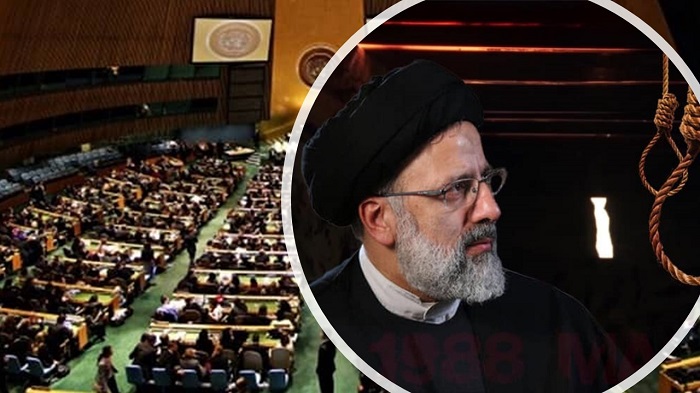
The National Council of Resistance of Iran (NCRI) reported on September 18th that as Ebrahim Raisi, the Iranian regime president, is scheduled to address the United Nations General Assembly (UNGA) on Tuesday, September 21, a conference will be held in Sweden to discuss his history of human rights abuses.
Iranian activists and expatriates are hosting the conference in Stockholm to discuss his history of supporting terrorism and his involvement in abuses of human rights, notably his involvement in the massacre of 30,000 political prisoners in Iran in the summer of 1988.
The NCRI said, “Raisi and his administration will oversee an upsurge in most of the regime’s malign activities. While a mere commitment to destructive politics is perhaps no grounds for barring Raisi from addressing the international community, the actual details of his record should have made him persona non grata among the democratic nations of the world since before he was appointed president.”
Many former political prisoners who personally witnessed the atrocities of the 1988 massacre and others who bore the brunt of Raisi’s brutally will be present at the conference either virtually or in person, some of whom were present at the NCRI’s global video conference on human rights and international law last month.
The fact that Raisi was invited to make a speech as the UNGA makes it clear that the international community are still unwilling to bring Raisi and other perpetrators of the 1988 massacre to justice despite a widespread campaign that has grown steadily for many years.
The NCRI said, “In light of the wealth of knowledge that is now available to the international community about Raisi’s background and role in the massacre, his speech is an insult to those who survived the massacre or lost loved ones to the proceedings of “death commissions” on which Raisi was a leading figure.”
Geoffrey Robertson QC from the UK and Eric David, a professor from Belgium, who attended the NCRI’s conference in August, both referred to the 1988 massacre as an act of genocide. They explained that the fatwa issued in 1988 by then-Supreme Leader Ruhollah Khomeini called for the executions of people affiliated with opposition groups, as their interpretation of Islam didn’t align with the mullahs’ extremist fundamentalist views.
The NCRI said, “The attempted annihilation of any ethnic or religious group is genocide under international law, and as Robertson pointed out, the Genocide Convention obligates any ratifying country to act against ongoing incidents or to prosecute those responsible for past incidents.”
Western governments have neglected to accept this obligation, and with the European Union sending a delegation to Raisi’s presidential inauguration on August 5, they have once again led the regime to believe that they are untouchable.
The hope is that with the conference in Sweden broadcasting the details of Raisi’s crimes against humanity, a larger international audience can be reached and further pressure Western officials and governments to hold the regime and Raisi accountable for their 40-years’ worth of human rights abuses.
The NCRI said, “This is something they can do via prosecution at the International Criminal Court. But if the regime allies pose an obstacle to such a multilateral effort, any nation that has ratified the Genocide Convention may arrest Raisi on the principle of universal jurisdiction if he sets foot on its territory.”